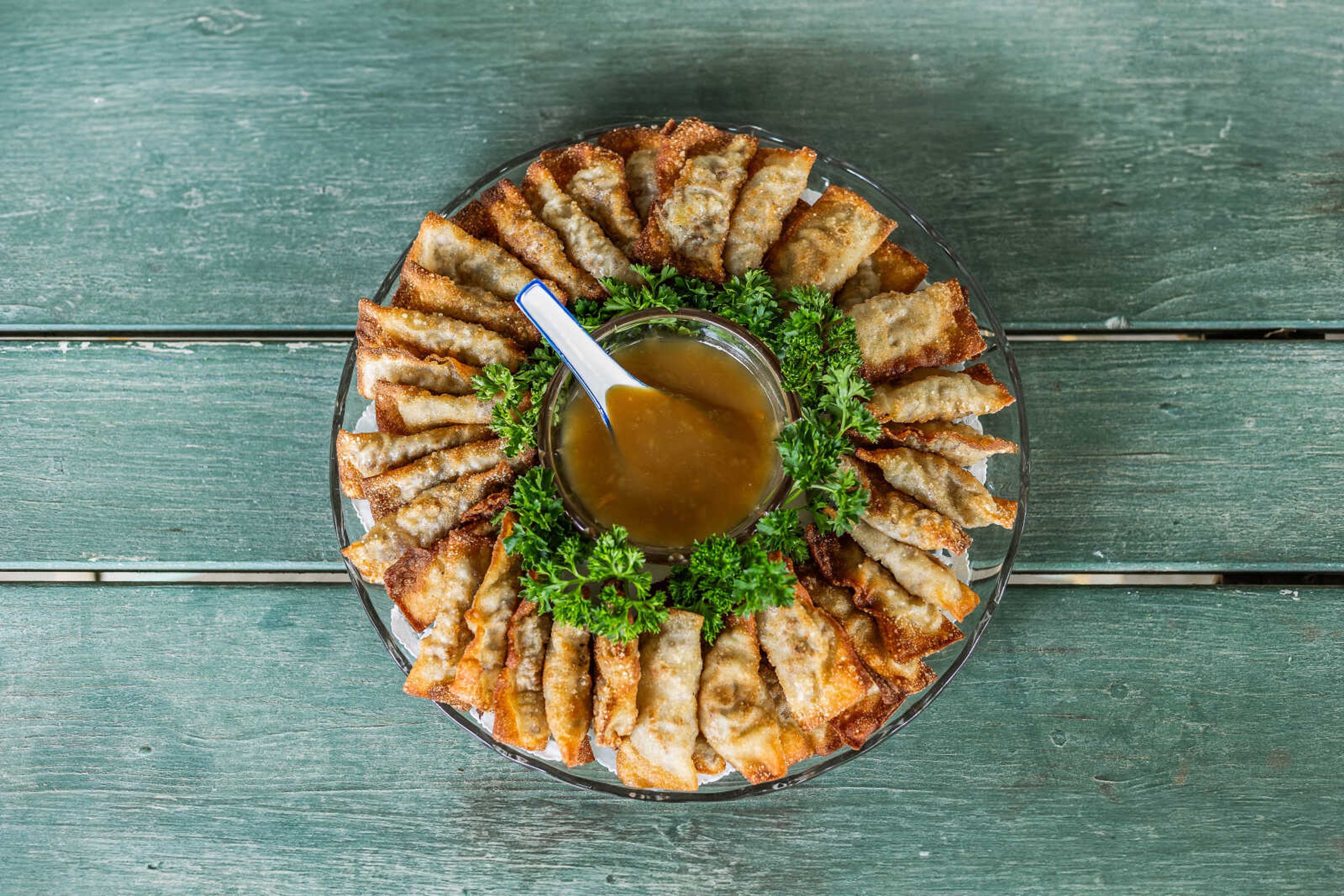Community Cookbook: Egg rolls with Kilja Israel, from South Korea to Cape Girardeau
Kilja Israel grew up in the southern part of South Korea, in a town similar to Cape Girardeau, where she currently lives. As a young girl, she knew the expectation: Learn to cook and sew, get a minimum education and marry. She wouldn’t go to college, because that privilege was reserved for her brothers. ...
Kilja Israel grew up in the southern part of South Korea, in a town similar to Cape Girardeau, where she currently lives. As a young girl, she knew the expectation: Learn to cook and sew, get a minimum education and marry. She wouldn’t go to college, because that privilege was reserved for her brothers. The motto of the all-girls high school she attended was “Wise mother, good wife,” and while Israel did eventually fulfill both of those roles, it wasn’t initially because of her cooking, which both she and others now enjoy.
“I didn’t cook much when I was growing up,” Israel says. “In Korean custom, my mother cooked, but we didn’t have recipes. Throw in this, throw in that. It was a guessing game.”
After high school while working in Seoul, Israel met her husband Thomas, an education advisor for the American soldiers stationed in Korea. Israel worked at a display booth at the Foreigners Shopping Center where Thomas brought students to learn English and gain exposure to Korean culture.
Upon completion of his one-year contract, Thomas returned to the States to secure a teaching position, but came back to Korea to marry Israel in 1962. They moved to Cape Girardeau soon after for Thomas’s job and began attending Abbey Road Christian Church. According to Israel, “The church family was wonderful and became a very important part of my life in America.” In the years that followed, the couple had three daughters.
“I came here young,” Israel says. “I didn’t know anybody. My husband didn’t like any Korean food — nothing spicy — only potatoes and meat. And my daughters were very plain food eaters, until they got to high school. Our neighbor told my husband to get me a Betty Crocker cookbook.”
The cookbook was useful, but Israel started to experiment on her own, too. She played around with flavors and tried to pick up on different ingredients within the new foods she ate. But she missed a few things from back home, especially egg rolls, and the American ones just didn’t hit the spot.
“People use all kinds of things [in egg rolls], but I don’t care much for pork and don’t like to use tofu,” Israel says. “I make a very simple version with shredded cabbage, fresh bean sprout and browned ground beef. It’s my own creation.”
While Israel was busy learning about American culture and how to cook, she also spent time studying at Southeast Missouri State University, earning a degree in sociology with a minor in library science. She began volunteering at the library at Saint Francis Medical Center, and after four months, when Senior Librarian Sister Louis Ebel left for the Franciscans’ Motherhouse, she encouraged her to take over the position. Israel worked at the medical library for 28 years. It was here, at hospital office parties, where she began to share her version of the American/Korean egg roll.
“I enjoy sharing food with people, and I appreciate when someone likes the food I make," Israel says. “A lot of people like my egg rolls.”
While her husband never came around to enjoying Korean food, Israel has stayed active in the community and blessed many with her authentic tastes from home. These days, she spends her time volunteering for Read to Succeed, playing pickleball and serving at her church, where members still request her egg rolls and fried rice.
Once a month, she gathers with six Korean women from different churches to study the Bible together. They wear Korean dress and eat spreads of typical Korean food. Over the years, her 11 grandchildren have developed a taste for Korean food, and her adult daughters have converted to the tastes, too. Israel hasn’t been to Korea since 2010, but the culture of her home country will always be a part of who she is. According to Israel, “It’s about time I go back for a visit.”

__Egg Rolls__
Ingredients
1 package wonton skin wrap
¼ medium cabbage, shredded*
1 package fresh bean sprouts
1 pound ground beef (Or chicken, turkey or pork)
1 medium onion, chopped
Vegetable oil (If frying egg rolls)
Soy sauce (Optional, to taste)
Sesame seed oil (Optional, to taste)
Sugar (Optional, to taste)
Salt (Optional, to taste)
Brown the meat with onion. Drain all fat. Sauté the cabbage and bean sprouts. Mix with meat. Flavor with soy sauce, sesame seed oil, sugar and salt (all optional and to taste).
Add a spoonful of the mixture to the wonton skin and seal the edges with egg white or with water mixed with cornstarch.
Fry+ egg rolls until brown on both sides. Place browned egg rolls on a paper-towel-lined baking rack. Serve immediately.
*Can use a bag of coleslaw instead of cabbage
+Egg rolls can also be steamed.
Dipping Sauce
Mix orange juice, corn starch, sugar and soy sauce to taste.
Connect with the Southeast Missourian Newsroom:
For corrections to this story or other insights for the editor, click here. To submit a letter to the editor, click here. To learn about the Southeast Missourian’s AI Policy, click here.










